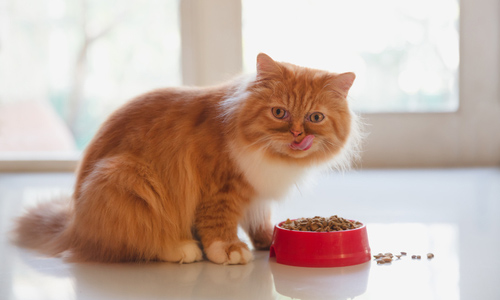
The Importance of Probiotics in Pet Food
The gastrointestinal (GI) tract in every animal, including humans and pets, has a network of microorganisms, such as bacteria, called the microbiome. The term “probiotics” refers to the good bacteria in the microbiome of the GI tract.
Billions of these probiotic bacteria that live in the guts of our pets work together to help them digest food, promote gut health, provide essential vitamins, and strengthen their immune systems.
The beneficial effects of probiotics have a scientifically proven reason. A vast proportion of the immune system of every animal, including our pets, is in their GI tract. It is known as gut-associated lymphoid tissue (GALT) and is the largest immune network in the body.
More resources related to immune function are dedicated to the gut because the GI tract is the largest area in an animal’s body that is exposed to antigens, especially from ingested food.
Probiotic Pet Food
Healthy pets have a healthy GI tract with an optimal amount of probiotics. But sometimes, elements like antibiotics, spoiled food, stress, parasites, food allergies, and old age can damage probiotics.
This can create an imbalance between good and bad microbes in your pet’s gut. It can make them sick with symptoms like bad breath, diarrhea, gas, and cramping.
The solution to these health problems is pet food with added probiotics. Probiotics in pet foods not only boost immunity, digestion, and the production of healthy gut bacteria but also remedy gastrointestinal upsets and urinary tract infections.
Probiotics in pet food are measured in colony-forming units or CFUs. For example, 1 to 10 billion CFUs a day is a recommendation for dogs.
Probiotic pet food also boosts your pet’s mental health, as their gastrointestinal tract and brain are interconnected. The right amount of a probiotic strain, such as Bifidobacterium longum, also known as BL999, in the GI tract helps regulate the emotional health of pets.
Probiotics and Prebiotics
Similar to probiotics, prebiotics are also beneficial for the health of humans and pets. While probiotics are healthy gut bacteria, prebiotics are the food for these bacteria. Natural sources of prebiotics are plain yogurt, kefir with live cultures, or any fermented food.
Prebiotics naturally derive from fibers found in vegetables, fruits, and legumes. Humans or pets can’t digest these types of fiber, but these beneficial gut bacteria can.
Lactobacillus and Bifidobacterium are two examples of probiotics, while fructooligosaccharides (FOS) and mannan-oligosaccharides (MOS) are examples of prebiotics commonly found in pet foods and supplements. High-quality pet foods have the right balance of probiotics and prebiotics.
Ensure High-Quality Pet Food Manufacturing with S. Howes
From ingredient sourcing and maintaining nutritional balance to ensuring food safety and adhering to regulatory compliance, pet food manufacturing comes with several challenges.
High-quality pet food manufacturing also demands cutting-edge industrial processing equipment to ensure efficient and precise handling of ingredients, optimal cooking or processing methods, accurate portioning and packaging, and overall streamlined production processes.
S. Howes offers a range of pet food manufacturing equipment for mixing, conveying, screening, sizing, and filtration processes. We’ve been in this business for over 160 years, delivering products that are built to last.
Contact us to learn more about their custom screw conveyors and how they can help you with your pet food processing.